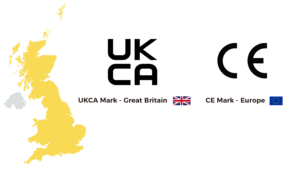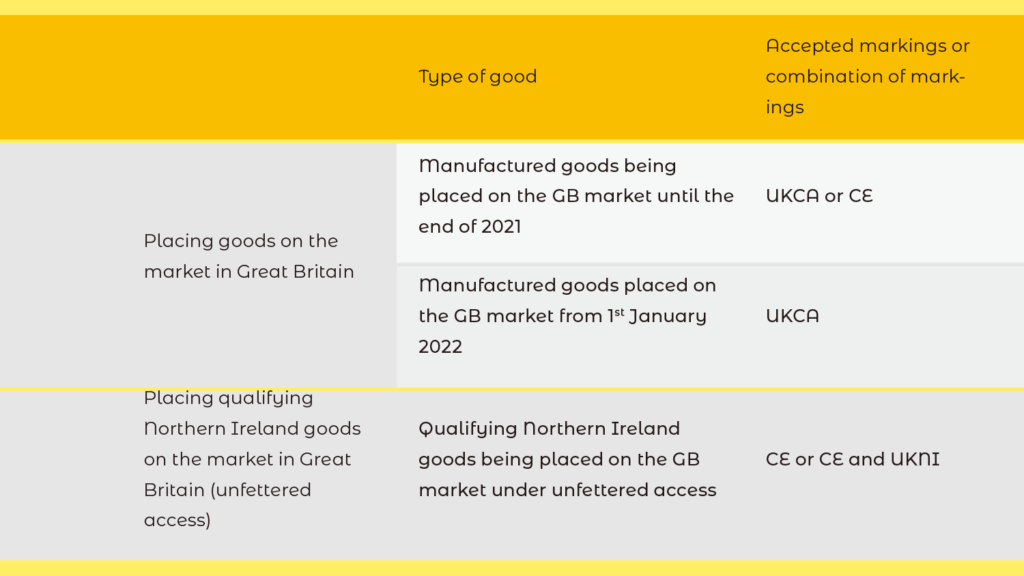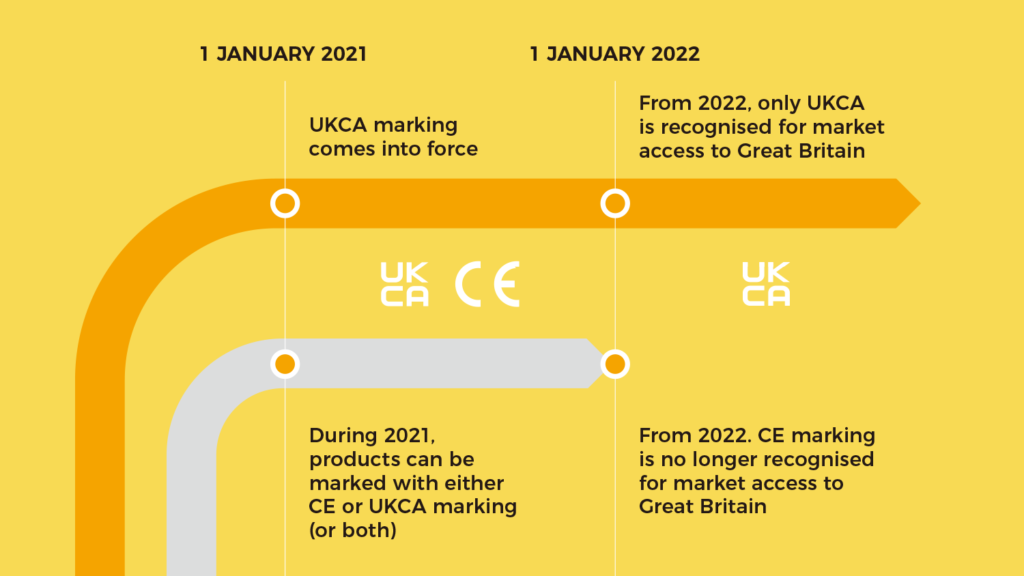
UKCA conformity assessment requirements from 1st January 2021
The United Kingdom (UK) formally left the European Union (EU) on 31st January 2020. A transition period until midnight Central European Time on 31st December 2020 was agreed to in order to allow companies time to adjust to new rules and regulations, including those related to conformity marking and assessment of products. Although both the UK and the EU have indicated a willingness to work together to achieve a negotiated agreement in relation to the regulatory regime after the transition period, plans were also implemented for the introduction of a UK Conformity Assessment (UKCA) Mark in the event that a deal was not reached. Ryan Mao, director of Product Certification Services, Asia Pacific of the British Standards Institute (BSI) provides information on how businesses can prepare for the UKCA marking.
——————-
What is the UKCA marking?

The UKCA is a new conformity marking for goods intended to be placed on the Great Britain (GB) (England, Wales and Scotland) market. The marking was introduced by the UK Government to replace the existing European CE mark. (If you are placing goods in Northern Ireland, please note the required marking outlined in the table.)
The relevant UK regulations have been amended to broadly replace references to the CE mark with references to the UKCA mark. The role of EU ‘Notified Bodies’ will be replaced with UK ‘Approved Bodies’.

Who is the UKCA marking for?
The relevant economic operator, whether manufacturer, importer or distributor, should be prepared to bear responsibility for providing proof that the good was placed on the market before 1st January 2021.
Businesses are encouraged to be ready for full implementation of the new UK regime as soon as possible after 1st January 2021. However, to allow businesses time to adjust, CE-marked goods that meet EU requirements (and match UK requirements) can continue to be placed on the GB market until 1st January 2022. This includes goods that have been assessed by an EU-recognised Notified Body.
Action should be taken to ensure compliance with new importer responsibilities if you are placing a product on the GB market from the EU market.
When to use the UKCA marking
You will need to use the new UKCA marking before 1st January 2022 if your product:
- is for the GB market;
- is covered by legislation which requires the UKCA marking;
- requires mandatory third-party conformity assessment; or
- was assessed by a UK conformity assessment body, and the assessment files have not been transferred to an EU-recognised body before 1st January 2021.
This does not apply to existing stock; for example, if your product was fully manufactured and ready to place on the market before 1st January 2021. In such cases, your product can still be sold in Great Britain with a CE marking even if covered by a certificate of conformity issued by a UK body.
How to use the UKCA marking
In most cases, you must apply the UKCA marking to the product itself or to the packaging. For some goods it may be placed on a manual or other supporting literature, depending on the specific regulations that apply to the product.
In general, the following rules apply:
- UKCA markings must only be placed on a product by you as the manufacturer or your authorised representative (where allowed for in the relevant legislation).
- When attaching the UKCA marking, you take full responsibility for your product’s conformity with the requirements of the relevant legislation.
- You must only use the UKCA marking to show product conformity with the relevant UK legislation.
- You must not place any marking or sign that may misconstrue the meaning or form of the UKCA marking to third parties.
- You must not attach other markings on the product that affect the visibility, legibility or meaning of the UKCA marking.
- The UKCA marking should not be placed on products unless there is a specific requirement to do so in the legislation.
Summary: Things to consider and prepare for
1. The new conformity assessment requirements
- The UK Government has confirmed that the UKCA marking comes into force from 1st January 2021. However, in most cases, to allow businesses time to adjust to the new requirements, existing CE markings can be used until 1st January 2022.
- After 1st January 2022, the UK will stop recognising the CE mark or conformity assessment activities performed by EU Notified Bodies.
- The new UK legislation requires product conformity assessment activities to be performed by an entity of an assessment body located in the UK.
- Likewise, the EU will not recognise conformity assessment activities performed by Notified Bodies in the UK for products placed on the market on or after 1st January 2021, or recognise the UKCA mark.
- EU directives require some assessment activities to be performed by entities located within the EU/European Economic Area.
2. Mind the timeline

NOTE: This graphic does not include timescales for marine equipment, medical devices or in-vitro devices.
Manufacturers will need to consider carefully the implications of Brexit for the conformity of their products and take appropriate action. Even though a transition period has been provided, the best approach is to complete the required activities as soon as possible. Manufacturers will also need to ensure that the various economic operators within their supply chain are located in the correct territory.
3. Make contact with the conformity assessment bodies
On 1st January 2021, UK-based Notified Bodies will automatically become ‘Appointed Bodies’ under the UKCA legislation. Any UK Notified Body-issued certificates that have not been transferred to an EU Notified Body by that date will automatically become valid for illustrating conformity under the UK regulations to which they apply.
If you have any questions, your conformity assessment bodies will always be willing to help.
Further reading
Guidance: Placing manufactured goods on the market in Great Britain from 1 January 2021, gov.uk
————————–
BSI was founded in 1901, and went on to become the world’s first national standards body and a founding member of the International Standards Organization. BSI is now a globally-recognised expert in standards best practice, serving 84,000 clients in 193 countries in a number of sectors including aerospace, automotive, built environment, food, information and communications technology, and healthcare.


Recent Comments